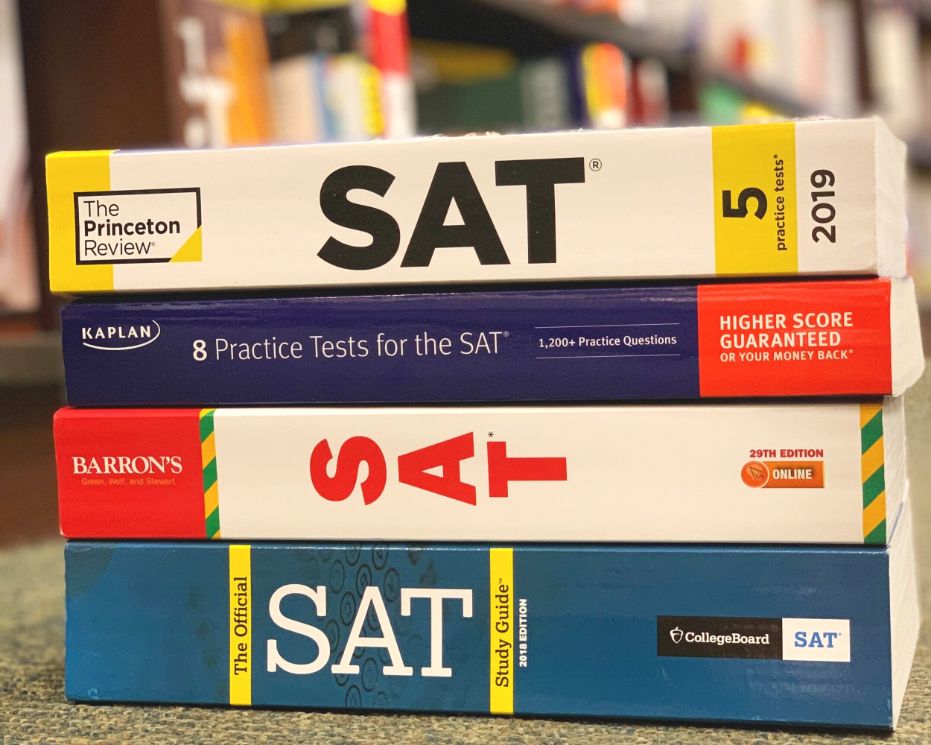
What is Test-Optional? A Complete Guide
Read this guide to find out everything you need to know about test-optional schools if you don’t do well on tests or believe your scores don’t fairly represent your academic abilities.
Colleges have changed their admissions procedures to be more flexible and customizable in light of the pandemic. Many have decided to adopt a “test-optional” policy regarding college entrance exams, either temporarily or permanently. College Board concurs with these choices, particularly at this time.
The idea of applying test-optional is understandably perplexing for many of us who grew up believing that the SAT or ACT was required for college admissions. We created a guide to test-optional admissions as a result, complete with suggestions on how to select the program that is best for you.
What is Test-Optional?
If a college or university allows all or some applicants to choose whether to submit their SAT or ACT® scores as part of their application, that means they allow test-optional admissions policies. Schools are still interested in seeing the test results of all applicants, but if a student doesn’t submit their results, it won’t be taken into account when reviewing their application.
According to a recent survey, close to 80% of applicants to colleges and universities that don’t require test scores choose to submit them. More than 80% of students who took the SAT indicated in a different survey that they wanted the option to send their scores.
You can choose to take the SAT, the ACT, or both tests with confidence if you are aware of test-optional policies. The fact that policies differ greatly is the most crucial point. To understand what you must do to be eligible for admission, scholarships, financial aid, etc., make sure you carefully read each college’s policy.

How Do Test-Optional Schools Work?
Understanding test-optional and test-flexible admissions policies is aided by familiarizing oneself with these two terms. Test-optional means that the university does not require applicants to submit standardized test scores when applying for admission.
Test-flexible gives students the option to submit other standardized test scores for consideration, such as substituting the SAT/ACT with SAT Subject Tests or Advanced Placement Exams. Both terms are frequently (and incorrectly) used synonymously, and test-optional is frequently referred to as a subset of test-flexible.
Test-blind is another term frequently used to describe test-optional admissions practices. Hampshire College is the only school that tests blind, according to PrepScholar. At Hampshire College, students are not allowed to submit any standardized test scores at all.
In theory, colleges are evaluating students based on their success given the resources they had access to by giving them the option of whether or not to submit their standardized test scores.
A test-optional admissions policy may not be test-optional for all applicants, though. Colleges may make distinctions between domestic and international applicants or only take test scores into account for candidates with a particular GPA.
How is Test-Optional Different from Other Test Policies?
Four additional typical testing policies are briefly described below.
Tests Required
You must submit your ACT or SAT scores if you want your application to be taken into consideration. This is the most common policy, and for a long time, it was the only policy colleges had regarding standardized tests. Both of these exams must be taken in order for your application to be considered complete; otherwise, it won’t be looked at.

Test Flexible
Test-flexible colleges differ slightly from traditional colleges that don’t require tests. You can submit other test results to these schools in place of the SAT/ACT.
The minimum SAT/ACT score requirements can typically be satisfied by submitting scores from AP exams, IB exams, and/or school-administered placement exams. Acceptable scores will vary depending on the institution. Schools that don’t require tests include NYU, Drexel University, and the University of Rochester.
GPA/Class Rank Substitution
At some schools, you may forgo sending in your SAT/ACT scores only if you meet the school’s minimum requirements If you meet these criteria, regardless of test results, you will be admitted automatically.
You must still apply as usual and include your SAT/ACT scores with your application if you don’t meet these minimal requirements.
It depends on the school, but generally, you need to be in the top 10% of your class or have a 3.5 unweighted GPA. Popular universities with a class rank/GPA substitution policy include Texas A&M and UT Austin.
Test Blind
At test-blind schools, SAT/ACT test scores are not considered at all during the admission process, even if you include them in your application.
The University of California schools, Hampshire College, and Washington State University are some of the institutions that use test blindness. Test-blind schools are becoming more common, but they are still a relatively uncommon policy.
You can see that test-optional is the most adaptable testing policy out of all of them. No substitute scores or a minimum GPA or class rank are required, and you are completely free to send or not send scores as you please.
How to Decide What’s Best for You?

There are two key questions to think about if the institution or institutions to which you are applying do not require standardized testing. First, decide if you should take one of the required standardized tests for college admission. Next, decide if you should share your test results if you decide to take the test.
To Test Or Not to Test?
The ACT or SAT can help you decide what to include in your application if taking a test is an affordable and practical option and you feel comfortable doing so. If money is an issue, you can find free study guides and test-taking aids online, at your local library, or even through your high school.
For public school students, many states already provide free exams, and in some states, certain students may be eligible for free SAT or ACT exams, which eliminates the need to pay registration fees.
Make sure to choose the option to view your test results before deciding whether or not to send them to colleges when you sign up for the exam. That will also assist you in determining whether you want to retake the exam to see if you can perform better.
To Submit Your Scores Or Apply Without Them?
The next question to answer, which can feel trickier, comes after you’ve received your scores. Is it better to apply without your test results or share them? Recall that the choice is entirely yours and that the best course of action varies from circumstance to circumstance.
Generally speaking, providing high test scores may help your application if you have them.
You might choose to submit your ACT/SAT scores if:
- You are confident that your test results will support or complement your application by accurately reflecting your academic potential and ability.
- Although you’d like your GPA or another aspect of your application to be stronger, your test scores are above average.
- You are a candidate from an unapproved home-schooling program. (Because colleges have fewer means by which to assess home school students, test scores can provide valuable additional information)
- Your test results are on par with or better than the average test results of the school’s most recent entering class, according to data that is typically available online.
You might choose to apply test-optional if:
- You were unable to take the ACT or SAT for whatever reason.
- Your performance has not been up to par, and your scores do not adequately reflect your potential and skills. (Maybe you experienced high anxiety during the test or were unable to retake the test and improve your score)
- Concentrate on the components of your application that best demonstrate your skills and qualifications, such as a high GPA, demanding coursework, involvement in extracurricular activities, and a well-written essay.
Summary: What Does Test Optional Mean?
What does “test-optional” actually mean? A test-optional school allows you to choose whether to submit your SAT/ACT scores. The test results will be reviewed if you submit them, but if you don’t, other aspects of your application will simply be given more weight to make up for the test results.
If you are certain that your application would stand out without your standardized test results or if you believe that they detract from the rest of your application, you might want to think twice before submitting them. To determine your best course of action, consult a college guidance counselor.
FAQs
Which Colleges Don’t Require the SAT Or ACT?
With temporary policy changes brought on by the coronavirus, the list of colleges that don’t require tests is constantly changing. Always confirm the college’s policy directly with them by visiting their website or calling their admissions office.
Does Test Optional Put You at a Disadvantage?
Choosing whether to submit your SAT or ACT scores is up to you if a school allows test-optional admission. If you submit them, they’ll be reviewed as part of your application, but if you don’t, you won’t be at any disadvantage compared to applicants who did submit test scores.


